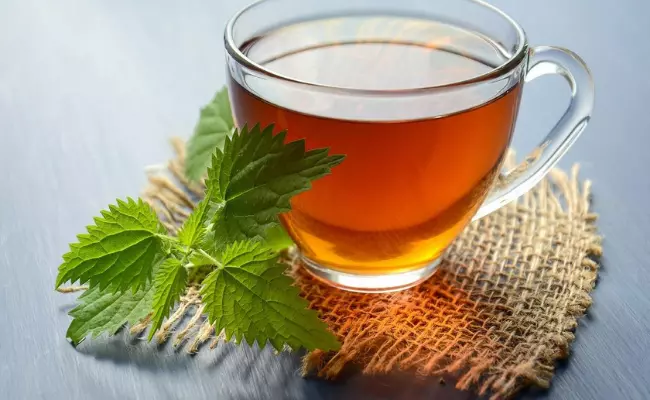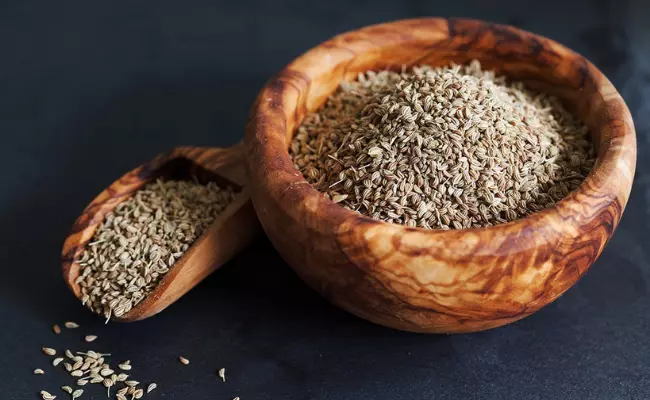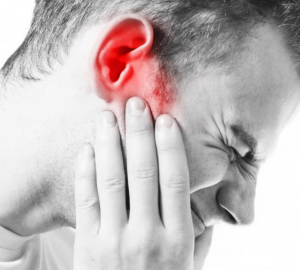A partial or whole loss of taste is referred to as a lost sense of taste. This phrase can also be used to describe an overbearing and often unpleasant taste.
It’s fairly uncommon to have a problem with your sense of taste. Every year, more than 200,000 people in the United States go to the doctor because they can’t taste or smell anything. According to some specialists, up to 15% of people may have taste or odor problems, despite the fact that many do not seek treatment.
A variety of medical conditions can cause a loss of taste. Some of these problems are minor, while others may necessitate medical attention. The fundamental cause will dictate the treatment. The probable causes of a diminished sense of taste and natural remedies for loss of taste will be discussed in this post.
What is Loss of Taste?
Taste loss is a typical symptom of GERD, salivary gland infection, sinusitis, poor oral care, and even certain medications. Ageusia is the medical word denoting a complete lack of taste. Dysgeusia is a term for a partial lack of taste.
Taste loss is caused by a blockage in the transmission of taste sensations to the brain or difficulty in the brain’s interpretation of these sensations. Taste disorders are common, but a full loss of taste is uncommon.
Heartburn, also known as gastric reflux, is a major cause of taste loss. Stomach acid regurgitated into the mouth causes a loss of normal taste, leaving an acidic or metallic aftertaste. A mouth or tongue infection is another typical cause of taste loss.
On the other hand, poor dental hygiene causes bacterial growth in the mouth, which leads to a loss of taste. Taste loss can be caused by a variety of mouth and tongue problems, including oral ulcers, cancer, and tobacco-related damage.

Causes of Loss of Taste
Phantom taste perception is the most frequent taste problem. Even when the mouth is empty, a person with this disease will have a distinct, lingering taste.
The flavor is frequently unpleasant, and it might dominate the flavor of other meals they are eating. A continuous burning feeling in the mouth may accompany the flavor. Phantom taste perception can be divided into three categories:
Ageusia
It is a condition in which a person’s sense of taste is completely lost, leaving them unable to identify any tastes.
Ageusia, on the other hand, is uncommon. Only about 3% of persons who lose their sense of taste have real ageusia, according to the authors of a 2016 study.
Dysgeusia
Dysgeusia leaves a persistent aftertaste in the mouth that can obscure other flavors and make everything appear the same. People with dysgeusia frequently describe the taste as having distinct qualities, such as:
- Foul
- Rancid
- Sour
- Salty
- Metallic
Hypogeusia
A partial loss of one sort of taste is known as hypogeusia. One of the primary tastes that a person with hypogeusia may be unable to detect is:
- Bitterness
- Sourness
- Saltiness
- Sweetness
- Umami, which is a pleasant, savory taste
Taste is influenced by a variety of sense organs, not just the tongue. The tongue, throat, roof of the mouth, and nose are all involved with taste, which is a more complicated sense.
A person’s sense of smell has a significant impact on how they taste food. The medical word for a loss of taste is anosmia.
An individual may have partial or total anosmia, leading them to believe they have lost their sense of taste.
Causes of taste loss include:
- Infections of the upper respiratory tract, such as the common cold and sinus infections
- Ear infections in the middle
- Gingivitis and other dental disorders are caused by inadequate oral hygiene.
- Surgery on the mouth, throat, nose, or ear head traumas exposure to some chemicals, such as pesticides
- For cancer in this part of the body, radiation therapy is used.
- Head injuries
- Sinus infections
Home Remedies for Loss of Taste
The good news is that you may restore your sense of smell and taste with the help of certain home remedies for loss of taste. In many circumstances, a person can improve their sense of taste by taking minor actions at home.
Peppermint
To make a cup of peppermint tea, combine ten peppermint leaves with a cup of water. In a frying pan, bring the ingredients to a boil. Once the solution has cooled, strain it and add honey to it. It should be consumed right away. Menthol is the primary component of peppermint leaves. It has anti-inflammatory and antibacterial properties, and it can change your perception of smell and taste.

Apart from this Peppermint also has Many More Amazing Benefits.
Garlic
Garlic’s key ingredient, ricinoleic acid, has anti-inflammatory effects that help to reduce edema and inflammation in the nose canal. The presence of antibacterial qualities adds to its benefit by eliminating phlegm deposits from the nasal channel and widening the nasal tube, making breathing easier.
Take 4-5 garlic cloves, crush them and add them to a cup of hot water. Boil for two minutes, then season with salt. To recover your sense of smell, drink the combination twice a day while it is still hot.
Carom Seeds
Ajwain, also known as carom seeds, is a well-known and one of the most famous natural remedies for loss of taste and allergies. The bitter-tasting Indian spice is supposed to relieve congestion while also improving the functioning of the olfactory senses and a person’s capacity to smell. If your taste battle is being made difficult by your decreased sense of smell and taste, this might be a nice hack to try.

Wrap a teaspoon of carom seeds in a towel or napkin and inhale the smell while taking a deep breath, according to one home cure. This can be done at various times throughout the day.
Red Chili Powder or Cayenne Pepper
Hot spices like cayenne pepper and chili powder can help you reclaim your sense of smell.
While this is not a scientifically validated cure, the advantages are attributed to capsaicin, a strong component found in the spice that is supposed to efficiently “clean” a blocked nose, engage senses, and improve olfactory function. It is also great for keeping a cold at bay. Before using it, make sure to combine it with a cup of water or add a sweetening agent like honey.
The Smell on Essential Oils
Smell training effectively retrains your brain to detect odors and reclaim your sense of smell and taste. Many aromatherapy practitioners and specialists advocate sniffing four different essential oils (rose, clove, lemon, and eucalyptus oils) twice or thrice a day for 20-40 seconds each. Don’t be discouraged if some of the scents appear to be distorted; this is usual.
Routine fragrances, such as shampoo, soaps, and culinary spices, can also be sniffed during the healing process; even if it doesn’t work right away, it may simply help you regain your olfactory loss sensation sooner.

Read More: Guide To Simple Health Benefits Of Essential Oils
Castor Oil
Castor oil is a potent substance and one of the effective home remedies for loss of taste. It has been used to reduce the growth of nasal polyps by those who suffer from regular sinusitis pain sensations, and allergies because of its antioxidant and anti-inflammatory characteristics. It can also help relieve the symptoms of a cough or cold, as well as re-establish a sense of smell to some level.
You can use castor oil on a regular basis to see a difference during your recovery period, depending on your preferences. Warm up a drop of castor oil and place it in your nostrils to practice deep breathing. You can also add a few drops of oil to your steam regularly.
Sniffing on a Burnt Orange
While not a scientific treatment, sniffing on a burnt orange or eating the flesh of a charred orange has helped some TikTok users regain their sense of smell and taste. Some people posted videos after citing a Jamaican remedy that required burning orange on an open flame and then eating the fruit’s flesh, which can revitalize your senses to whiff on something as powerful and eventually regain it.

However, consider that this is a social media hack, not a doctor-approved treatment, so proceed with caution.
When Should you See a Doctor?
Allow yourself some time if you lose your sense of smell and taste due to a cold or sinus infection. Within a few days of the hard clearing up, your sense of smell and taste should return. If you answered yes to any of the following questions, you should schedule an appointment with an ENT specialist:
- Is there a reason for your loss of smell and taste?
- Has it appeared out of nowhere?
- Is it more than a few days old?
- Is it a serious situation?
An ENT specialist can determine the underlying cause of your loss of smell. A series of questions will be asked to understand your symptoms and onset better. It may also include X-rays, CT scans, MRIs, or a nasal endoscopy to examine the interior of your nose.
Your ENT expert can provide treatment options after determining the reason for your loss of smell. This could be as simple as taking an over-the-counter decongestant, or it could necessitate a surgical operation to clear clogs.
Final Words
A partial or complete loss of taste can be caused by problems in the mouth, nose, or even ears. In many cases, the cause is just transient, such as a nasal infection that causes inflammation.
You can use any of these home remedies for loss taste to regain your sense of taste and smell, but make sure you do it on a daily basis. The optimum time to use these natural cures is in the morning.
Restoring one’s sense of smell and taste is critical. You may always rely on dietary adjustments and home cures to help you recover faster. Working closely with a doctor and trying to take advice before using these home remedies for loss of taste to diagnose and address the underlying problem is critical.









